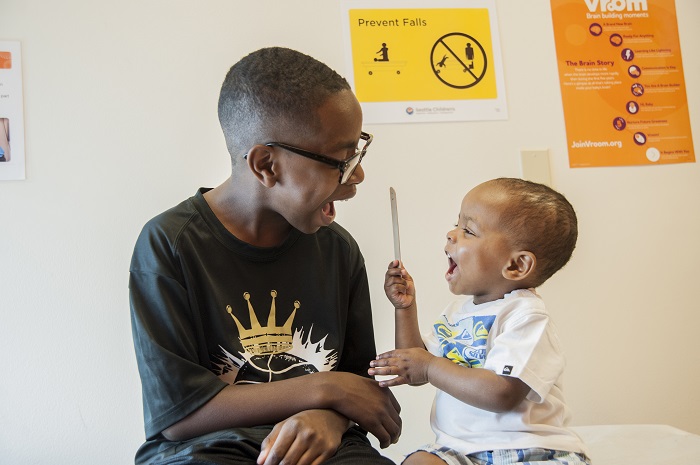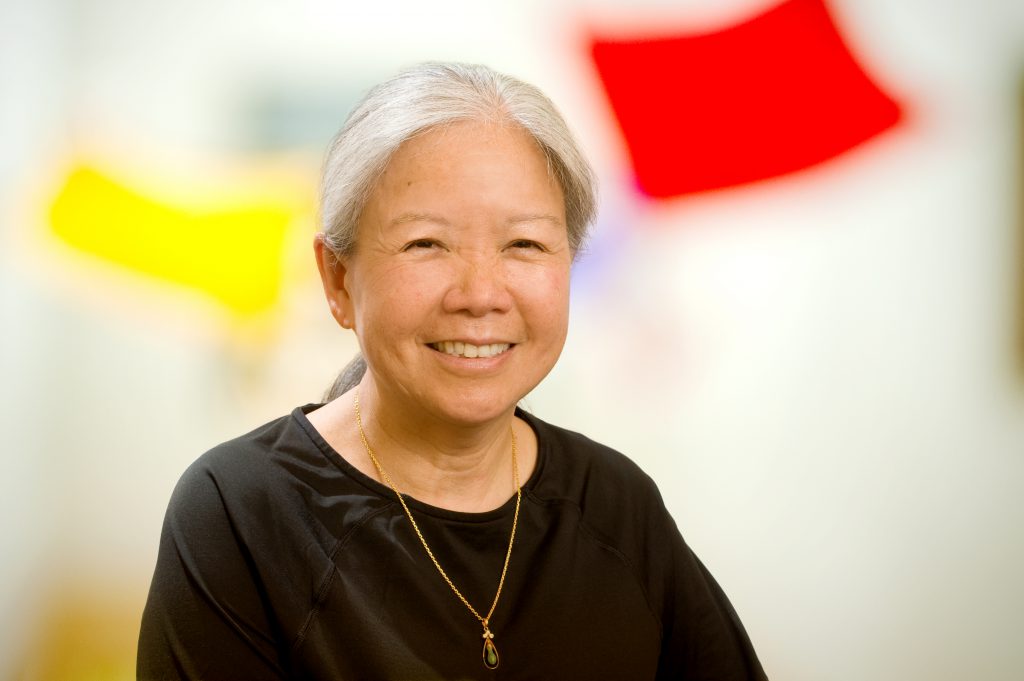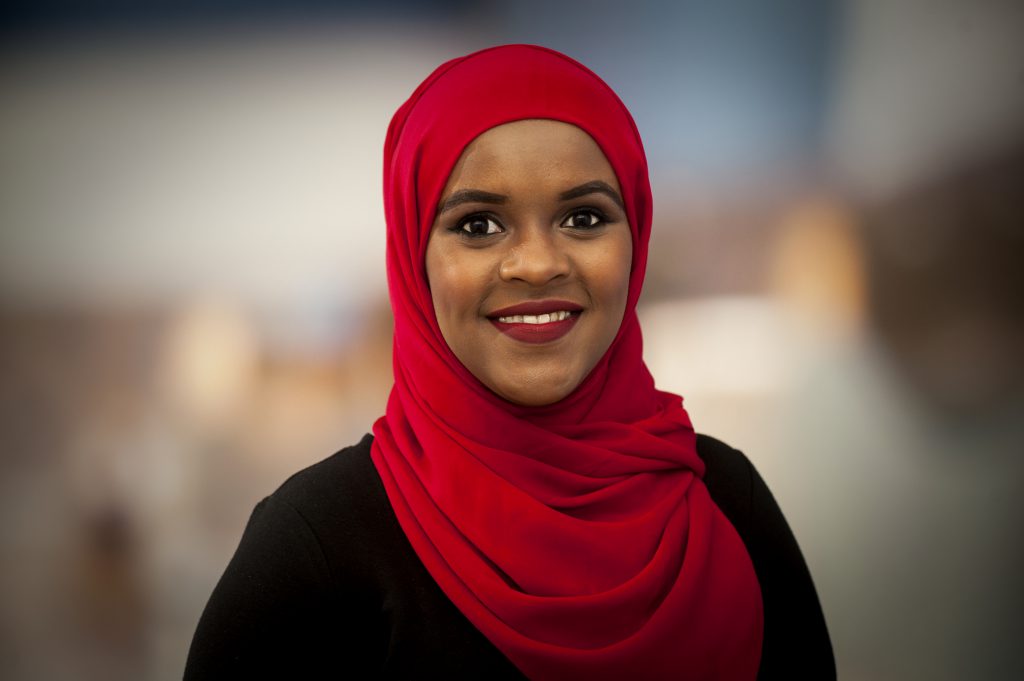 Dr. Seok Bee Lim has been practicing pediatric dentistry at Seattle Children’s Odessa Brown Children’s Clinic (OBCC) in the Central District for nearly 37 years. Although the neighborhood around her has changed since she started her career there, the mission of OBCC and the passion she has for caring for her patients has remained steadfast. Much like OBCC, Lim provides more than just healthcare; she’s part of the rich heritage OBCC was founded upon and the diverse community it serves.
Dr. Seok Bee Lim has been practicing pediatric dentistry at Seattle Children’s Odessa Brown Children’s Clinic (OBCC) in the Central District for nearly 37 years. Although the neighborhood around her has changed since she started her career there, the mission of OBCC and the passion she has for caring for her patients has remained steadfast. Much like OBCC, Lim provides more than just healthcare; she’s part of the rich heritage OBCC was founded upon and the diverse community it serves.
“We care for a child’s teeth, but we also care for the whole child and their family,” said Lim. “Part of the success of OBCC is its strong community connection. Families count on us to receive quality care, and they repeatedly say, ‘I will never go anywhere else.’”
OBCC has been a staple of the community for nearly 50 years, serving thousands of patients every year, particularly families in underserved communities. The clinic provides medical, dental, mental health and nutrition services to children, regardless of a family’s ability to pay, and offers a unique model of care that addresses the socioeconomic and environmental roots of illness.
A community on the move

Due to the rising cost of housing, the area surrounding OBCC is undergoing gentrification. Many families – nearly 75% of the patients the clinic serves – have moved to south Seattle and south King County to find affordable housing. For that reason, Seattle Children’s recently announced a new OBCC location in the Rainier Valley, which will be closer to where families are and more accessible by public transportation. The original OBCC, located in the Central District, will be renovated to upgrade its clinical facilities and maintain its cultural heritage in the community. The second OBCC location will also include a new dental clinic.
Rates of dental disease among low-income children are rising. Children living in poverty are five times more likely to have dental disease, and one of the main reasons children miss school is because of a toothache. Seattle Children’s hopes to counteract the challenges these families face by addressing the roots of illness in the new clinic.
To assist in this effort, Delta Dental of Washington has committed to provide up to $5 million to support oral healthcare services at the second clinic and will increase access to care by adding 12 dental chairs.
Delta Dental of Washington believes everyone deserves good oral health. Their vision is to improve oral health so that no one is left behind, which is why they are partnering with OBCC to increase disease prevention and expand access to care.
“This donation and partnership with the Odessa Brown Children’s Clinic are an example of how Delta Dental of Washington is living its mission and vision, and improving overall health in our state,” said Jim Dwyer, Delta Dental of Washington president and CEO.
For Lim, this generous gift means OBCC will be able to help more kids receive the dental care they need and deserve, closer to home.
A clinic that opens doors to a world of opportunities

According to Lim, the most rewarding aspect of her job is seeing her patients grow up to be healthy, happy and thriving adults. Former patients, like Dr. Anisa Mohamed Ibrahim, still make Lim smile as she recounts their visits to the dental clinic as children.
“I’m so proud of her and the person she has become,” said Lim.
Many OBCC patient families come from diverse backgrounds. Nearly 70% of OBCC patients are insured by Medicaid; one in 10 patient families are immigrant families, and 20% of patient families speak Spanish at home. The clinic also serves 7% of King County’s foster care population.
Ibrahim came to the U.S. as a refugee from Somalia in 1993. Her family was resettled in Seattle when she was 6 years old. She remembers going to OBCC and laughs as she recalled how often she went for dental appointments. She said her teeth weren’t in the best shape when she first started going to OBCC, but it was always a place where she felt supported.
At one point, she needed braces for her top teeth. Looking back on that experience, Ibrahim said it helped shape who she is today and how she cares for her own patients. Today, Ibrahim works at Harborview Medical Center.
“I didn’t know how to advocate for myself back then,” said Ibrahim. “The braces would have been a large financial burden on my family. It was out of the range of what my mother could afford, but I remember the people at OBCC advocating for me. They went above and beyond to help me and my family.”
She says that experience at OBCC stuck with her throughout the years. She knew then, what she wanted to embody in her own medical career.
“I have the privilege of caring for medically complex immigrant and refugee children,” said Ibrahim. “We’re often one of the first people they see in the healthcare system. It’s a great experience to be able to serve them. I was that refugee girl. Now, I get to advocate for them. It’s not just about asking how I can help my patients with their illnesses. I ask myself every day, ‘What else can I do for them?’”
Both Lim and Ibrahim want families in their community to know that OBCC is a place where they are welcome, no matter what their circumstances might be.
“When I provide care to a patient, I hope our interaction expands well beyond me just caring for their teeth,” said Lim. “I hope it can make a difference, so that they can have the opportunity to live happy and healthy lives for years to come.”

